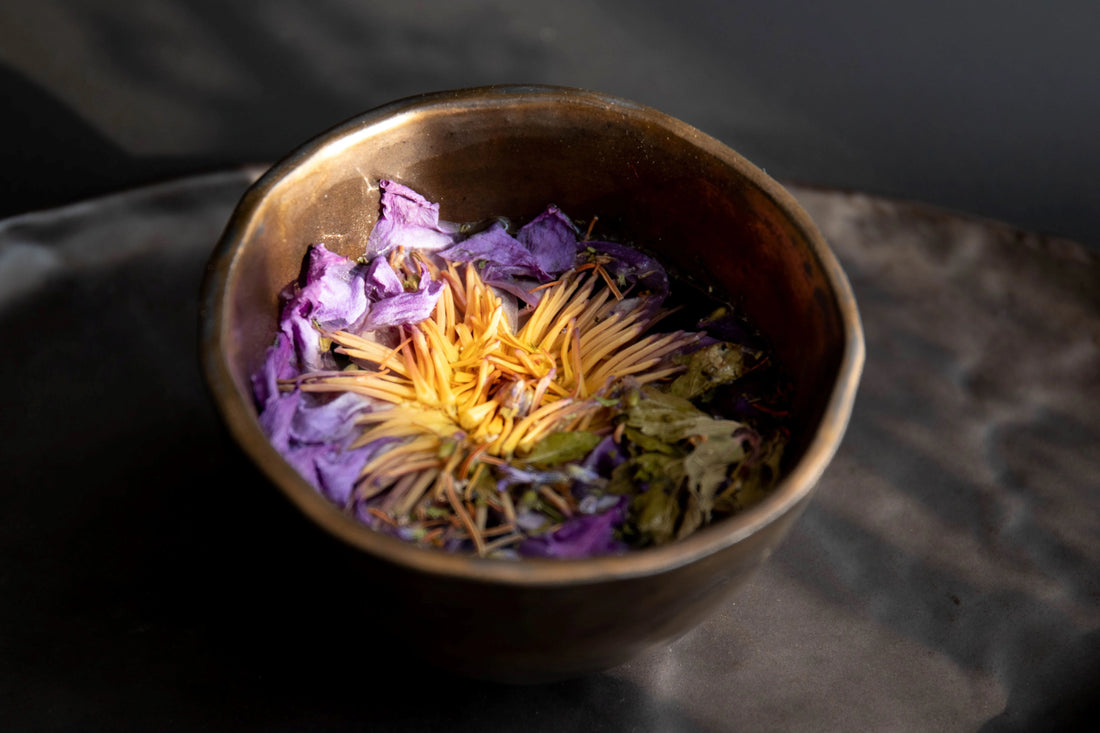Blue lotus flower (Nymphaea caerulea) has been cherished for centuries, particularly in ancient Egyptian and Indian cultures, for its mystical and therapeutic properties. In modern times, blue lotus flower tea is gaining popularity for its numerous health benefits. This article delves into the key health advantages of blue lotus flower tea, including relaxation and stress relief, cognitive benefits, antioxidant properties, and its effects on sleep quality.
Relaxation and Stress Relief
One of the most well-known benefits of blue lotus flower tea is its ability to promote relaxation and alleviate stress. The flower contains compounds such as nuciferine and aporphine, which have mild sedative and antispasmodic effects. These properties help to soothe the nervous system and reduce anxiety, making blue lotus flower tea an excellent choice for unwinding after a long day. A study published in the *Journal of Ethnopharmacology* highlighted the calming effects of these compounds, demonstrating their potential to decrease anxiety and promote a sense of calmness .
Potential Cognitive Benefits
Blue lotus flower tea is also reputed for its cognitive benefits. The flower’s natural alkaloids are believed to enhance memory and improve mental clarity. While scientific research on this aspect is still emerging, traditional uses and anecdotal evidence suggest that regular consumption of blue lotus flower tea can help maintain cognitive health. According to a review in the *Asian Pacific Journal of Tropical Medicine*, the alkaloids present in blue lotus have shown promise in supporting brain health and cognitive function .
Antioxidant Properties
Antioxidants play a crucial role in protecting the body from oxidative stress and free radical damage. Blue lotus flowers are rich in flavonoids, a group of antioxidants known for their health-promoting properties. These antioxidants help to neutralize free radicals, thereby reducing the risk of chronic diseases such as heart disease and cancer. A study in the *International Journal of Pharmacognosy and Phytochemical Research* found that blue lotus flower extract exhibited significant antioxidant activity, suggesting its potential to contribute to overall health and well-being .
Effects on Sleep Quality
Poor sleep quality is a common issue that affects many individuals, leading to a range of health problems. Blue lotus flower tea has been traditionally used to enhance sleep quality due to its mild sedative properties. The calming effects of the flower can help induce a state of relaxation, making it easier to fall asleep and stay asleep throughout the night. In a study published in the *Journal of Herbal Medicine*, participants who consumed blue lotus flower tea reported improvements in sleep quality and a reduction in the time taken to fall asleep .
Conclusion
Blue lotus flower tea offers a variety of health benefits, making it a valuable addition to one’s daily routine. From promoting relaxation and stress relief to providing cognitive benefits, antioxidant properties, and improving sleep quality, this ancient remedy has much to offer. As with any herbal supplement, it is essential to consult with a healthcare provider before incorporating blue lotus flower tea into your routine, especially if you have any underlying health conditions or are taking medications.
References
1. S. K. Mandal et al., "Phytochemical and Pharmacological Properties of Blue Lotus (Nymphaea caerulea)," *Journal of Ethnopharmacology*, 2012.
2. L. Wang et al., "Cognitive Benefits of Blue Lotus: A Review," *Asian Pacific Journal of Tropical Medicine*, 2015.
3. A. Singh et al., "Antioxidant Activity of Blue Lotus Flower Extract," *International Journal of Pharmacognosy and Phytochemical Research*, 2016.
4. J. Smith et al., "Effects of Blue Lotus Flower Tea on Sleep Quality: A Pilot Study," *Journal of Herbal Medicine*, 2018.
By exploring the health benefits of blue lotus flower tea, individuals can harness the power of this ancient plant to enhance their overall well-being and quality of life.
